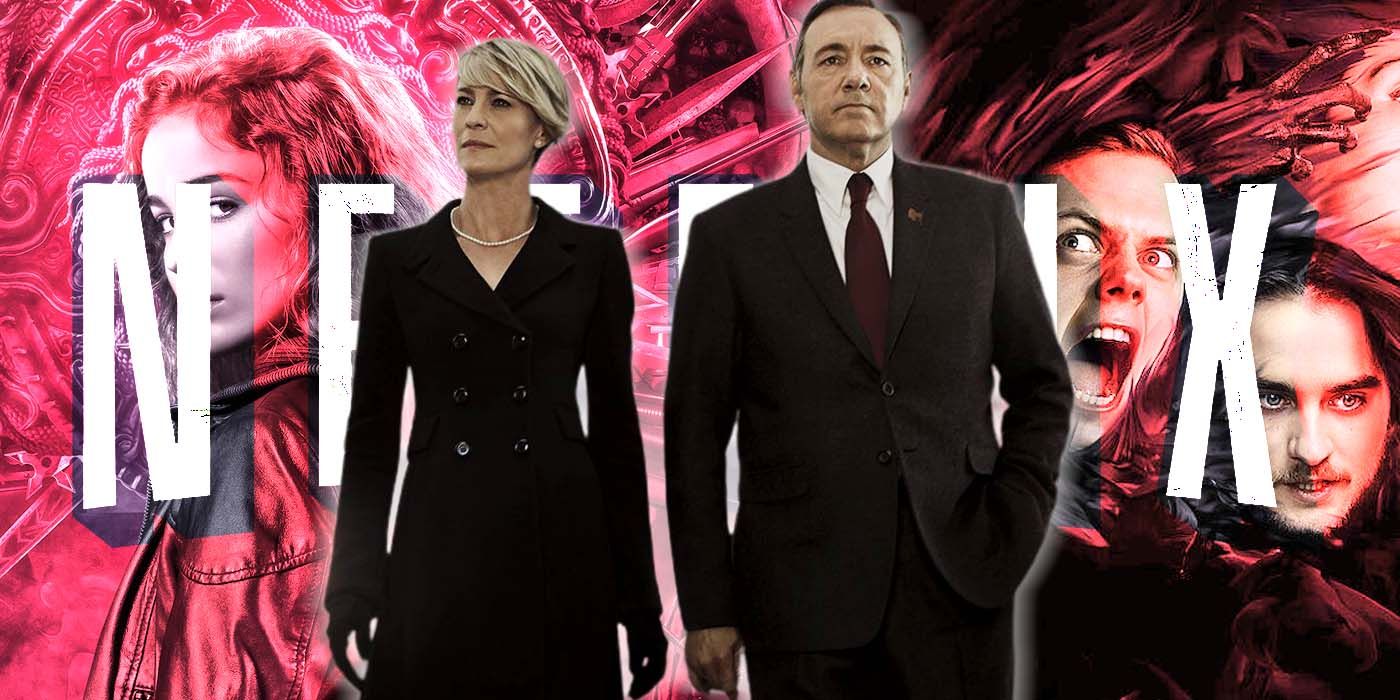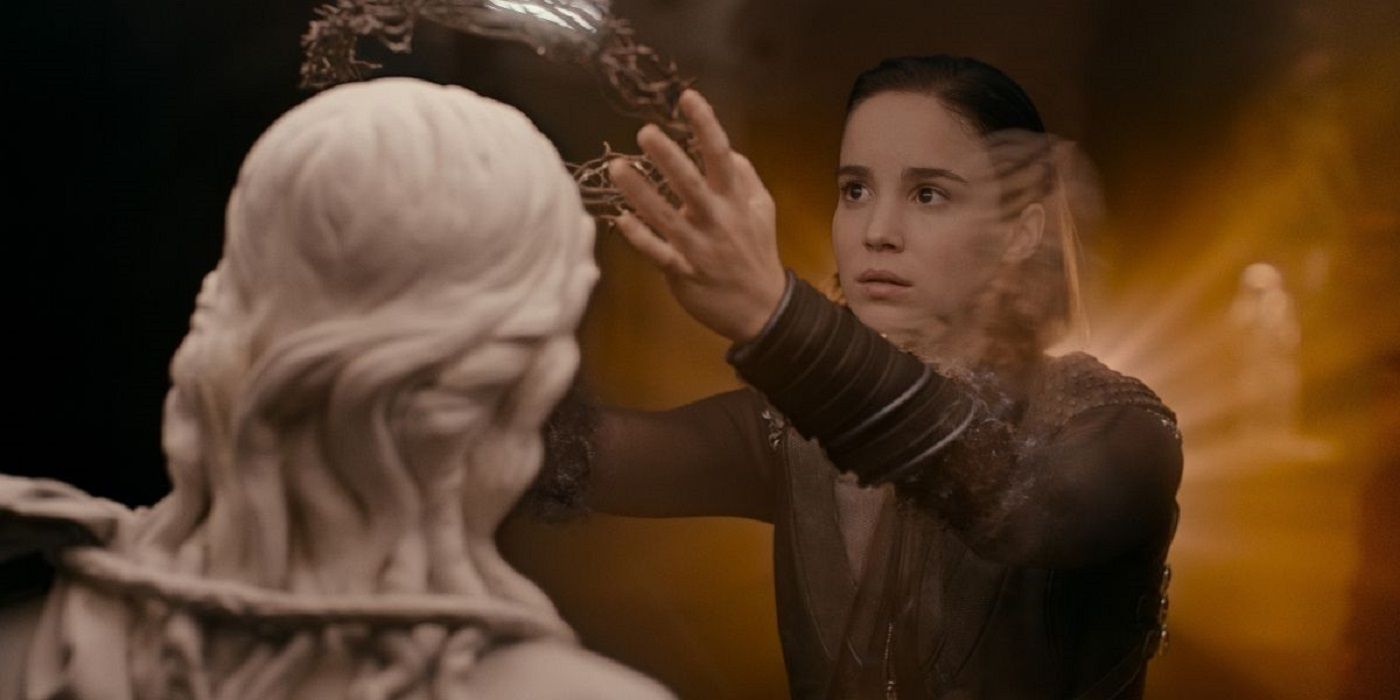In two years, most studios went from being all-in on streaming to a more hesitant, bet-hedging posture -- except Netflix, a company that only has streaming. The digital nature of the medium means that the company might have massive amounts of data, but barely a decade into being an original content producer, Netflix doesn't know what a "successful" TV show is. At least, not yet.
Creators on the streamer like Neil Gaiman are very open about the metrics used to justify renewal. Essentially, Netflix weighs how many users stream a show or movie in the first month to six weeks of its existence to decide if it's a hit or not. This is a method likely developed out of the binge-watch model Netflix pioneered. When Ted Sarandos said that Netflix "never canceled a successful show," that's what he means. Also, unlike every competitor, Netflix is profitable, even though they are cracking down on password-sharing as subscriber growth plateaus. Yet for every Stranger Things or Squid Game, there are dozens of series and films on Netflix that don't immediately find an audience. While originals might bring subscribers in, completed series is what keeps them. Their biggest hits are shows that would've been canceled immediately had they debuted on the streamer.
Netflix Pioneered Streaming, but It's Still Figuring Out How Prestige TV Works
It's a toss-up between Squid Game and Stranger Things for Netflix's current biggest hit. Its very first successful show, binged incessantly on debut and capturing the zeitgeist, was House of Cards. The US version of the BBC political drama was effusively compared to The Sopranos. Ironic, since Netflix's previous original Lilyhammer started Steven Van Zandt playing a character very similar to Silvio Dante. But unlike the critically acclaimed David Chase HBO drama, in 2023 no one talks about House of Cards. And while that mostly has to do with Kevin Spacey, it also has to do with how the real world trumped the thesis of that series. The past half-decade or more has proven that if the U.S. government is like any TV show, it's Veep.
Still, House of Cards put Netflix on the map as an original content producer. Its star power didn't just shine in front of the camera, either. Beau Willimon created the series and wrote the majority of Season 1, while its look, tone and feel were defined by David Fincher's pilot direction. However, by the time Frank Underwood committed his third murder with his bare hands, that luster wore off. In contrast, the recently-canceled Warrior Nun got none of the highbrow bona fides, but it had something House of Cards never did: room to grow.
It's not just House of Cards, either. Early originals like Hemlock Grove, Orange is the New Black, Marco Polo and others had varying success on release, but no staying power in pop culture. The only Netflix series that had the lasting impact of its licensed, completed series was their Daredevil show co-produced with Marvel Television. That's now back at Disney and set to be sequelized or rebooted in Daredevil: Born Again. Truly great television like Warrior Nun, Sense8 and other underappreciated series needed time to find their audience. In fact, Netflix killed shows' best opportunity for a second (profitable) life: syndication.
Warrior Nun and Other Canceled Netflix Originals Would Have Been Perfect 'Streaming Syndication' Shows
With streaming allowing viewers to revisit comfort shows like The Office on demand, the syndication side of television became significantly less profitable. Studios made money licensing out previously aired TV seasons to other channels. This is why Gen X kids who stayed home from school a lot are experts in 1960s-era TV. While there is still a syndication market, now shows mostly aim for streaming after they debut. Netflix as a studio defines success with, effectively, a popularity contest. By ending shows like Warrior Nun without proper closure, the streamer devalues assets that would've kept people subscribed longer than they intended. Syndication shows don't light the world up when they debut like prestige TV series; instead, they consistently find new audiences who appreciate a well-written story told to the end.
Netflix unceremoniously canceling series that are still finding their audience and have the momentum to grow is a self-fulfilling prophecy. No one would pay Hulu to watch 12 Monkeys or Disney+ for Daredevil if the shows ended on an unresolved cliffhanger. A new series might only get 10 percent of Stranger Things' audience in its first month. Yet if the storytellers were given the chance to bring the show to a proper ending, it could earn that 10 percent (maybe even 20 or 30 percent) every month as new viewers discover it. Seinfeld famously escaped cancellation in its first year because an NBC executive's kid liked it. Netflix execs should let their kids watch more TV.
Netflix knows more about its viewers than any other production studio in history. They have years of user data to parse for the answer to the eternal question: what do viewers want? That data-driven approach fails, however, because TV audiences don't always know what they what until it's given to them. A sensitive mobster who goes to therapy was a joke -- literally, as Billy Crystal and Robert DeNiro starred in two comedies based on the premise. Yet that idea spawned The Sopranos and redefined what TV could be. Netflix has a chance to do the same if it can get away from its data and take a few leaps of faith.


